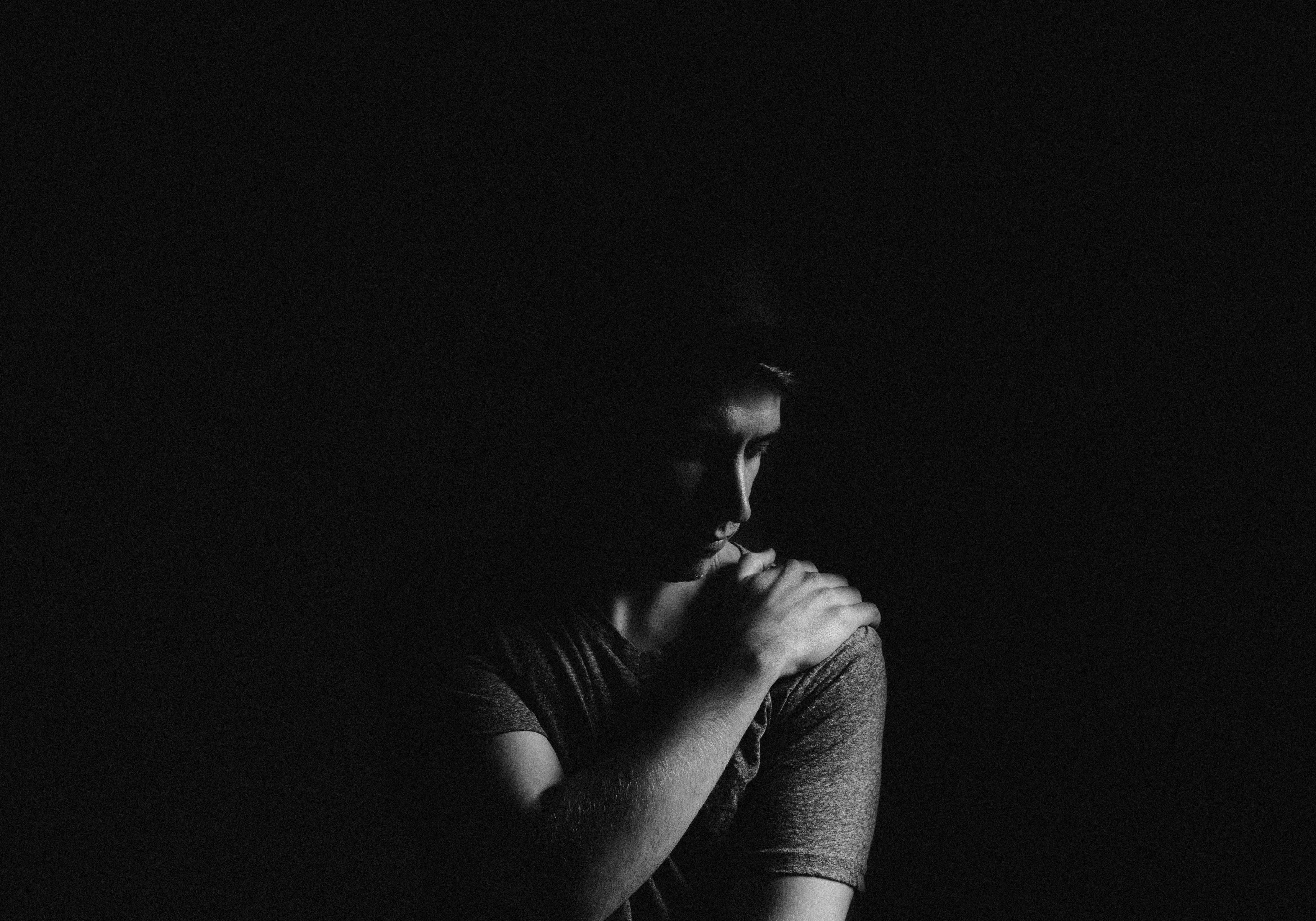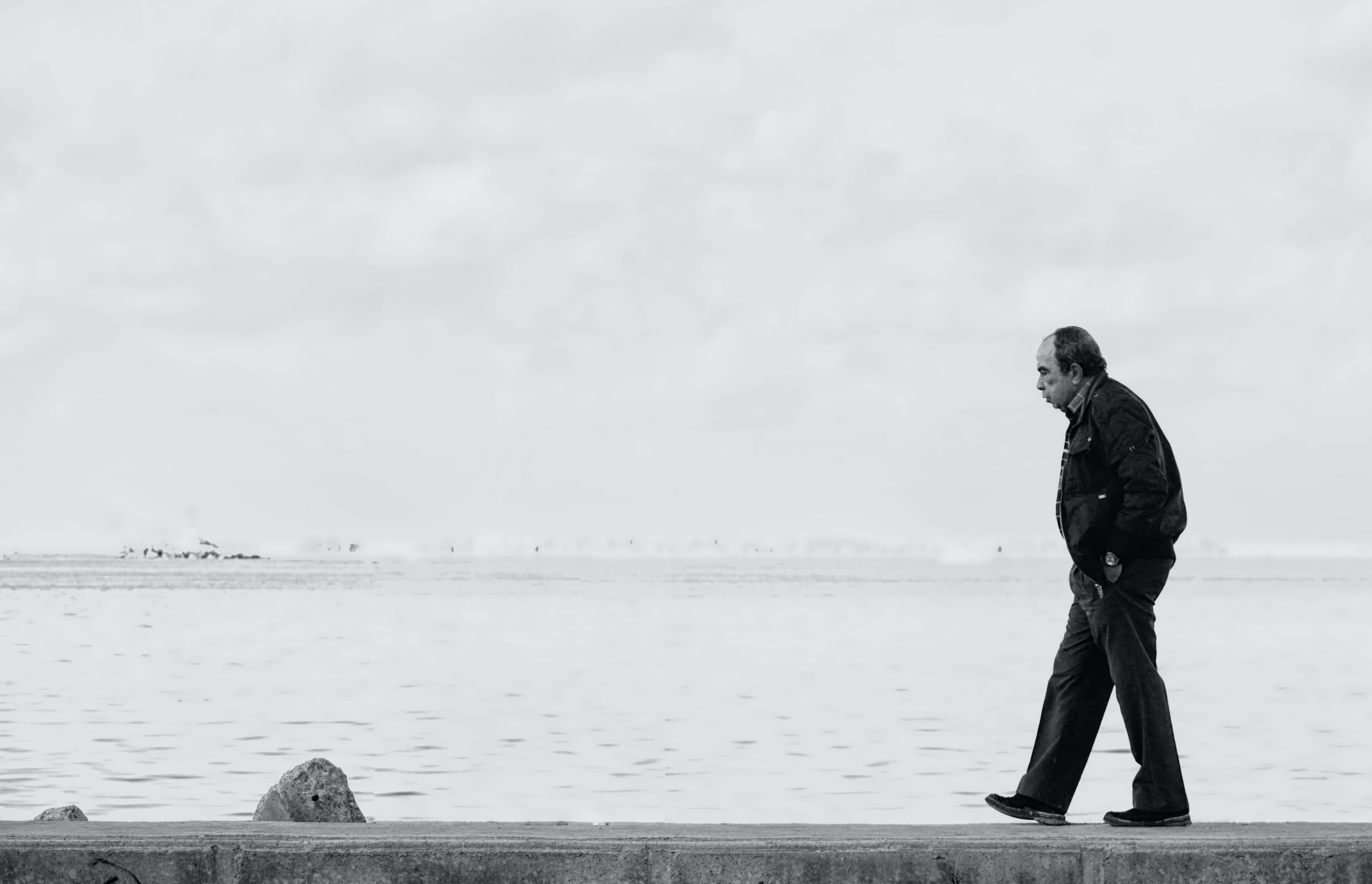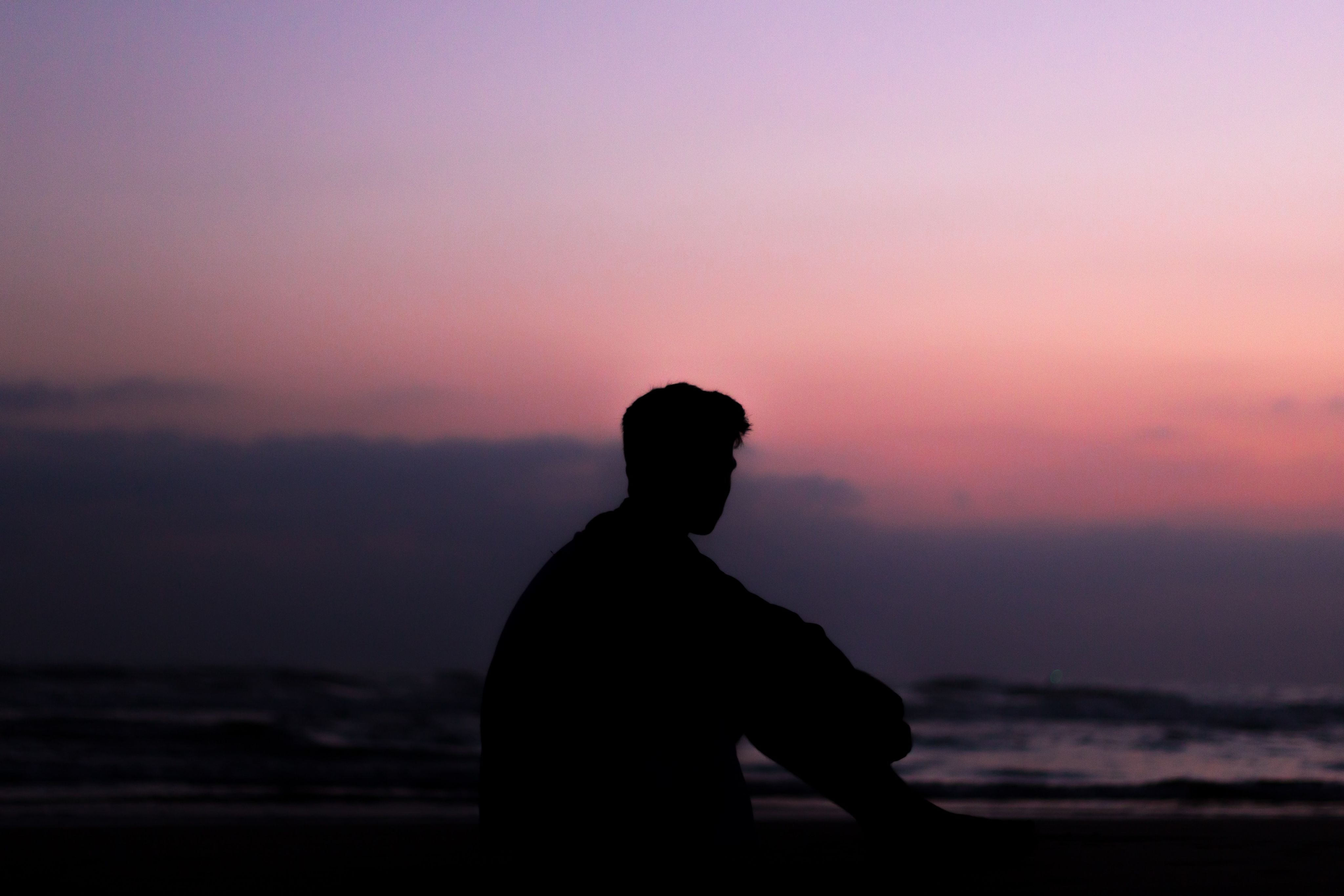Child Sexual Abuse & Its Effects on Male Survivors

Many men become confused about who they are after Child Sexual Abuse (CSA). As boys, we are socialized to believe that "real" men crave sex and are supposed to accept it whenever it is offered. We are infiltrated by movies and books of "coming-of-age" narratives where the boy is introduced to the sexual world by an older woman. Suppose we are not welcoming of this ideology and glorification of losing our virginity to an older woman? In that case, we face the degradation of being a deviant, not a man. We are socialized to believe that sexual abuse is something we should enjoy. CSA male survivors abused by men may have confusion about their masculinity and if the traumatic event will leave them gay or reveal their orientation as gay, and the unanswered questions of why they were selected or if they subconsciously invited the abuse.
In his book, Victims No Longer, Mike Lew states, "Questions about their sexuality are faced by male survivors regardless of their sexual orientation" and, “My general sense is that abuse is probably not the cause of sexual orientation, but it almost always leads the survivor to have confused feelings about his sexuality.”
For me, I have struggled with my sexual orientation, and for years I have tried to figure it out on my own. CSA males constantly try to understand and comprehend the abusive act and sometimes find themselves drawn to specific male figures or types for uncertain reasons. If the survivor is not entirely aware that they were abused in the first place, this may be the mind's way of letting that person know something happened. Many times, these feelings do not emerge until later—years after the abuse. I found myself drawn to a particular type of older figure with certain physical traits—dark hair, light-colored eyes—and I was unsure why. It was not until years later that I discovered that these character traits fit my coach and father, who abused me, leaving me struggling to understand my sexual orientation.

Many men try to find answers and continue to seek the answers throughout their lives in seclusion and not getting professional help. The implications of society's beliefs and the pressures of "what it is to be a man” have kept many men from ever seeking help—but they will torture themselves trying to comprehend and understand the reasons behind the sexual abuse events. In his book Facing the Truth of Your Life, Merle Yost shares that Many CSA heterosexual men abused by men will recreate the scene later in life by putting themselves in situations that could lead to man-on-man action to try and comprehend and work out the embedded and suppressed memories of the abuse. This approach is not an indicator that they are gay.
Award-winning Hollywood director, writer, and producer John Callas shared, “As a boy barely reaching puberty, the sexual trauma of rape left confusion about trust with the opposite sex. I was unsure of how to deal with my emotions about my experience. Left with no one to talk to, it took until my young adult life to start having a healthy and trusting sexual life. I am grateful for the woman I was starting to date who saw the issue and walked me through what it meant to be with a sexual partner. I was awkward at first, but she encouraged and taught me to be confident. Today, that part of my life is under my control and no longer a victim of that circumstance. It took my willingness to talk, accept what happened, let it go, and move forward to make a life-changing decision.”
The long-term effects of CSA include PTSD, guilt, anxiety, depression, interpersonal isolation, shame, low self-esteem, self-destructive behavior, poor body image, sleep disturbance, nightmares, anorexia, bulimia, relational and/or sexual dysfunction, compulsive behaviors, sexual obsession or compulsion, and even suicidal ideation. Dr. Daniel Jay Sonkin, in his book Wounded Boys, Heroic Men, states that it is not unusual for CSA survivors to become addicted to pornography, prostitution, or hyper-sexualization, especially those trying to understand why the abuse happened.
Survivor and advocate for She has a Name, C. Stewart Kitchen shared, "After he assaulted me, so many questions ran through my mind. ‘Does this make me gay?’, ‘Does everyone know?’ I grew up in a small, midwestern rural town with conservative views on sexuality and masculinity. I was insecure about this throughout high school. I thought people knew, and that there was always this inside joke about me that I didn't know about - I know that isn't true now, but I didn't back then, and it wasn't easy. Common teenage insecurities seemed less like a coming-of-age process and more like a challenge I needed to win. I felt I had to prove I was somebody, to prove I was straight, and accomplish something (a pattern of behavior that will be repeated many times throughout my life). I dove into athletics, arts, youth organizations, and leadership roles to build this "all-around guy" resume because I thought people would think about that instead of this loser weakling who gets molested. And, to prove I wasn't gay, I felt like I needed to be sexually active."
If the predator is male, the male survivor is riddled with confusion, fear, shame, and reluctance to report due to social stigmas, even if the event is considered abusive or unwanted. This scenario interweaves conflicts about orientation and masculinity significantly if the survivor's body responded. Many straight male survivors overcompensate through hyper-sexualization, hyper-masculinity, and homophobia because of social norms and expectations. Some try to prevent contributing trauma to others by choosing to live in isolation.

An anonymous survivor, Jason, shared, "That was my last sexual experience with another guy. Although I longed to experience more, I feared getting rejected, hurt, or sick. I developed a strong dependence on male porn and masturbation.
I am happily married to a good woman and am also a father. I love my family and am grateful for the stability I've found there. I deal with a lot of shame over my secret attractions. I fear that if people found out what I'm drawn to, they would find me disgusting and reject me. I didn't seek this out and wished I didn't feel this way. My hunger for acceptance and approval, mixed with a premature sexual awakening, caused a lot of confusion.
I wish more people would take the time to understand the confusion, fear, and shame that many male victims of sexual abuse deal with every single day. I didn't think I was abused because no one was mean to me, hurt me, or forced me to do anything against my will."
Photo by Cristian Lozan on Unsplash
Photo by Cristian Lozan on Unsplash
If the predator is female, the male survivor interprets this as "sexual initiation" and not molestation, even if the event was unwelcome. Some male survivors struggle with issues played out in mother-son incestuous relationships. They may become so repulsed by the mental connection to their mother-type that they reject their natural heterosexual orientation and encode themselves as gay or asexual. Some men cannot climax with their wives because of these suppressed abusive memories with an older woman they were not attracted to.
Craig Heiting, a survivor and advocate for Men of Voices Beyond Assault, shared, “I didn't feel like I was gay, but I was afraid that sexual abuse by a male perpetrator might somehow indicate or make me gay. I always felt attracted to girls, so in high school, college, and while I was single, I went out with as many girls as I could to prove to myself that I was heterosexual. Upon getting married, I kept my secret and was afraid to tell anyone, especially my wife, about the abuse because I thought it would forever change how she looked at me and she would leave me. I am so thankful that, after breaking my silence about my abuse, I am still married (30+ years) and have four beautiful grown children.”

Survivors identifying as gay are taught that homosexuals are sexually promiscuous, and this may cause confusion determining how abuse intersects with sexual objective choice and desire. This confusion can leave the survivor unable to decipher what is and isn't abuse. Many gay men confuse sexual abuse as an initiation into adulthood, rite-of-passage, an affair, or a real relationship. If the predator is a woman, it can cause more complications for the male survivor who identifies as gay.
Mississippi Coalition Against Sexual Assault states that there is already enough homophobic sentiment in society to make many gay men suffer from internal conflicts about their sexuality. Being sexually assaulted may lead a gay man to believe he somehow 'deserved it' or that he was 'paying the price' for his sexual orientation. Unfortunately, this self-blame can be reinforced by the ignorance or intolerance of others who blame the victim by suggesting that a gay victim somehow provoked the assault or was less harmed because he was gay. Many gay survivors are reluctant to report due to fear of blame, disbelief, or intolerance by police or medical personnel, resulting in the deprivation of legal protection and the necessary medical care.
Michael Mourachian, the founder of the podcast Silence by Stigma, shared, "As for a quote, I can say this: Female sexual offenders, who victimize boys, are generally not considered as dangerous, and the abuse is often dismissed as a harmless, if not fortunate, event for the abused. As such, I was unable to frame or understand the destructive behavior I exhibited over the following 35 years. A mentally ill, suicidal, alcoholic, sexually obsessed man, unable to give or receive love, allowed for devastating consequences for myself and those unfortunate enough to be standing in my blast radius. In short, it f***** me up on every conceivable level."

Photo by Yiran Ding on Unsplash
Photo by Yiran Ding on Unsplash
Dr. Kelli Palfy, the author of Men Too, discloses that CSA often leads to confusion based on findings she discovered during her research.
- Confused Non-Compliant: Many males who are sexually abused recall having enjoyed [to a sense] the physical release associated with having an orgasm, then experience shame. Since their bodies responded physically to the stimulation, they questioned if they enjoyed being abused. Sometimes the answer is still no, which could be the natural sexual orientation or the influence of norms talking. It is natural to enjoy having an orgasm; our bodies are wired that way.
- Emotionally in Need Non-Compliant: Many groomed males recall having enjoyed the relationship (outside of the sexual aspect) and subsequently choose not to sever the bond, despite the sexual abuse. They recall choosing to fight less or "allowing" the abuse to continue. What started as abuse is still abuse.
- Fatigued Non-Compliant: Despite their initial fear and terror, boys often submit to their predators because they realize it is futile to fight; they know they will be overpowered. Others submit because they understand that if they cooperate, the abuse will end sooner, or the perpetrator will decrease their level of violence. Abuse is abuse, regardless of the victim's level of resistance.
Mike Davis, with Men Healing, shared, “My first childhood abuse came before I was five years old. I did not remember my abuse for over 50 years, so deeply were those memories buried. I’ve learned this is a common experience.
When a child is abused and betrayed by someone they depend upon for their existence, the impact is widespread and long lasting. My lack of trust, deep rooted shame, belief the people closest to me would hurt and betray me, made close relationships difficult. Worst yet, all this was unknown to me. My failures to feel deep emotions and connections led me to believe that something was fundamentally wrong with me.
Those closest to me suffered collateral damage as the invisible battle I fought within myself spilled over into my waking life. There was an invisible presence in our lives which I was often responding to, the perpetrators of my abuse. It led to angry reactivity as I responded to the present as if I was still in my fearful past.”

Each male survivor's healing journey is unique and individualized, just as is comprehending and understanding who he is. The more men share their stories of CSA, the more society will hear and hopefully change their expectations.
I would like to thank the brave men who shared their stories with me for this article:
John Callas, John Callas
Mike Davis, Men Healing, Help for Male Survivors | MenHealing
Craig Heiting, Men of Voices Beyond Assault, Voices Beyond Assault
Jason, an anonymous survivor.
C. Stewart Kitchen, She has a Name, She Has A Name
Michael Mourachian, Silence by Stigma, PODCAST | Silenced By Stigma
Thank you as well to the Mississippi Coalition Against Sexual Assault, MSCASA
Books
Gartner, R. B. (2005). Beyond Betrayal: Taking Charge of Your Life After Boyhood Sexual Abuse. John Wiley & Sons, Inc.
Lew, M. (1988). Victims No Longer: Men Recovering from Incest and Other Sexual Child Abuse. HarperCollinsPublishers.
Palfy, K. (2020). Men Too. Peaks & Valleys Publishing.
Sonkin, D. J. (1998). Wounded Boys Heroic Men. Adams Media Corporation.
Yost, M.J. (2018). Facing The Truth of Your Life. Merle James Yost.

About the Author:
John-Michael Lander is a Survivor, Advocate & Public Speaker
He is also the founder of An Athlete's Silence: www.anathletessilence.com
Published by SurvivorSpace, an initiative of Zero Abuse Project








